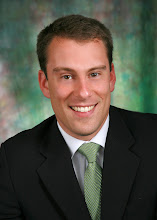The Aylen Legacy
By Hans Zeiger
(A version of this article appeared in the Puyallup Herald on October 1, 2008)
This week, Puyallup will dedicate Aylen Junior High School’s new campus. As an Aylen alumnus, I take some pride in the event. We should also celebrate the man for whom the school is named. Dr. Charles H. Aylen leaves a legacy in Puyallup of service in health care and education.
Charles Aylen was born near Mandan, North Dakota in 1889, the year that his birth state and his adopted state both entered the union. He grew up on the frigid buffalo plains where the Missouri River forms the Heart Tributary.
Aylen studied medicine at the University of Manitoba in Winnipeg, earning his doctorate just as Canada entered the World War in 1914. He joined the Canadian Army as a physician in the medical corps. While serving in a British military hospital, he fell in love with a young nurse named Beatrice.
Dr. Aylen returned to Mandan with a German sword, a French 75 mm field gun, and a British infantry helmet. Many years later, Dr. Aylen enthusiastically donated these relics of the First World War to Puyallup’s scrap drive of the Second World War. Such things were expendable compared to the real treasure of Dr. Aylen’s war years—Beatrice—who soon made her way to North Dakota for the wedding.
Dissatisfied by the plains, Dr. Aylen and his new bride set off for the Pacific Northwest. They settled in Puyallup in 1919, and soon Dr. Aylen partnered with Shirley Berry to begin a small clinic in a private house in Sumner. It was Dr. Berry who established the Puyallup Valley Hospital at Meridian and Fourth Avenue Northwest in 1922. Along with Dr. Charles Morse, Dr. Berry and Dr. Aylen comprised the medical staff of the new hospital. The doctors’ offices were on the ground floor, and the hospital rooms were on the second floor.
In the decades to come, Dr. Aylen delivered thousands of Puyallup’s babies and cared for them as they grew. As a father himself, Dr. Aylen took increasing interest in the quality of life of Puyallup’s young. He served two terms on the Puyallup School Board in the 1930s and 1940s, working closely with the legendary superintendent Paul Hanawalt.
Dr. Aylen retired in the late 1940s. The following decade, a management change at Puyallup General Hospital turned it into Good Samaritan Hospital. The Aylens spent part of their retirement years in La Hoya, California.
I visited with Dr. Aylen’s son Bob several months ago. Bob and his wife June still live in the community, and they attend monthly reunions of the Puyallup High School Class of 1939. Dr. Robert Aylen worked for decades as a dentist in Puyallup, himself serving two terms on the Puyallup School Board in the 1960s alongside another junior high school namesake, Dr. Vitt Ferrucci.
Also like his father, Bob Aylen is a veteran of a world war, having flown B-26s in Army Air Corps training programs. He spent the early part of the war working in the Tacoma shipyards. He studied dentistry at the University of Washington and began his practice above the Rose Restaurant in 1950. Later, he and Ransom Convis opened a dentist office next door to the Meeker Mansion, where they expanded their partnership to include John Parrish. Bob Aylen spent forty years practicing in Puyallup, retiring from the dental profession at the age of seventy.
Charles Aylen and Bob Aylen stand out among the “generous people” who have served in our community. They answered the call to serve in times of war. They came home and devoted their lives to the health of Puyallup. They championed local education as members of the school board.
In a yearbook message to Bob’s graduating class of 1939, Charles Aylen quoted the Roman emperor Marcus Aurelius: “We are made for cooperation,” he wrote. Perhaps recalling his own experience at war, and aware that portents of war were growing once again in the world, he wrote, “Yet in spite of all our advance in science and the arts, nations and races have not learned to cooperate. Therein lies the greatest challenge to education. If we can, through education, bring about a deep and lasting cooperation between all peoples of the earth, that will, in the truest sense of the word, be progress.”
It was through education, Charles Aylen believed, that human beings could learn to put aside their differences and find common purpose. He dedicated himself to that idea and died in 1981 at the age of 91, having lived to see Puyallup’s junior high school dedicated in his name.
Hans Zeiger is an Aylen Junior High School alumnus and a fourth generation Puyallup resident. He is collecting stories about Puyallup during World War II, and can be reached at hanszeiger@yahoo.com or 253-905-8160.
Wednesday, October 1, 2008
Subscribe to:
Post Comments (Atom)



No comments:
Post a Comment